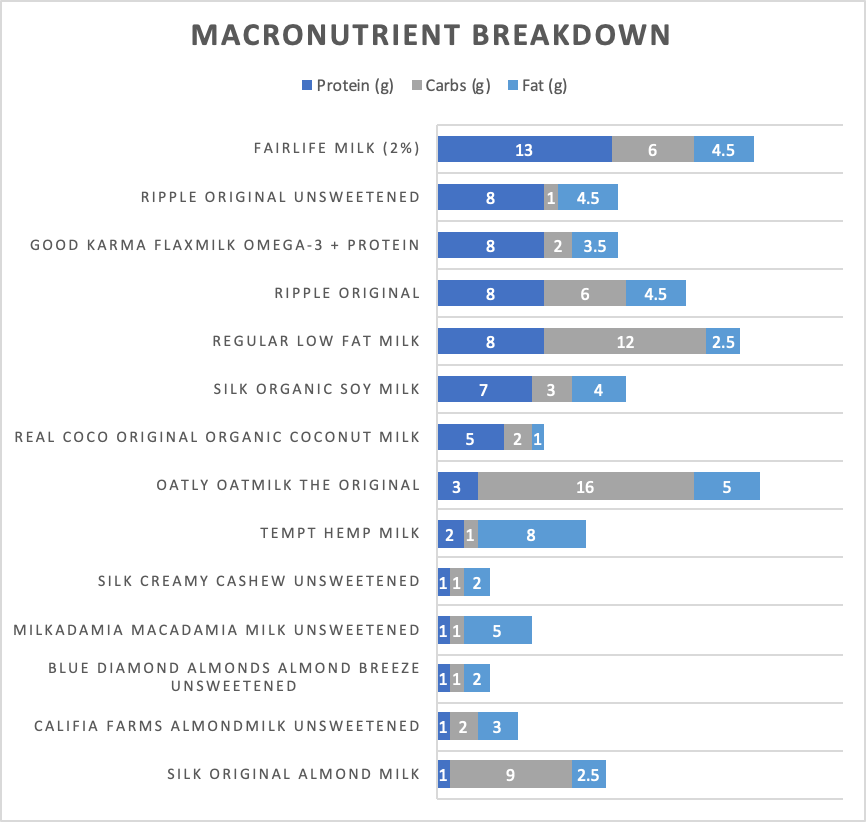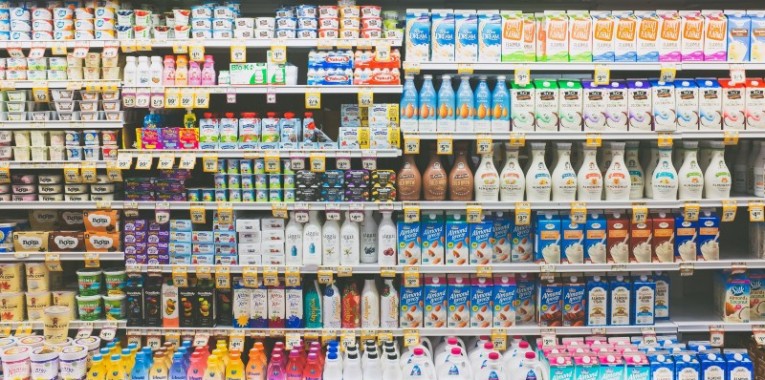
Milk and Milk Alternative Overview
Plant-based milks, similar to cow milk are mostly water (which may be why milk is one of the most hydrating beverages). Plant-based milks are derived mostly from soaking the nut/seed/grain in water and adding plant-based oils and gums for texture and natural flavors/sugars for taste. Most have calcium added and some have added soy or pea protein to meet the protein content of milk.
Plant-based alternatives have popped up due to the increasing lactose allergies that people are, although more and more people are drinking plant-based milks without any allergies. Is the switch “healthier”.
Let’s look at a breakdown:

There are 2 major things I look for when evaluating milks:
- Protein
- Added Sugars
As you can see the chart is sorted by PROTEIN because we know that protein (1) helps with satiety, (2) is important for keeping lean muscle on, and (3) because it balances blood glucose levels when consumed with a carbohydrate.
Based off this you can see that Fairlife milk wins the protein category (13g) followed by cow milk, Ripple milk, and Good Karma Flaxmilk all at 8 grams per cup.
From an added sugar perspective, I chose to analyze mostly ‘unsweetened’ varieties which cuts down the added sugars, but the new guy on the street ‘oatmilk’ has the highest carb content (although it does have 2 grams of fiber), so keep this in mind when you order a oatmilk latte next time (note: it is also not recommended for people who follow a low fod map diet due to high maltose). Cow milk is the next highest in sugar, although this is not added sugar it is from the lactose naturally found in milk, followed by original almond milk (or any plant-based milk you get that is not unsweetened).
Let’s look at cost per cup now:

Based off this, cow’s milk at $.30 per cup is actually still the best ‘bang for your buck’ and provides you with a good amount of protein. For athlete’s looking to get more protein in, Fairlife milk offers a reasonably priced ($.53), high protein, lower sugar option that is lactose-free. For those looking for a plant-based milk, Ripple Milk has the highest protein with lowest sugar content for just $.72 per cup.
But What about milk in my coffee…
It is hard to beat the texture and creaminess of cow milk in coffee, but if you are allergic or avoiding dairy there are plenty of options out there now. Oatmilk wins the plant-based milk contest for texture and creaminess in coffee, although keep in mind it has 50% more calories in it. Almond milk and soy milk are probably the second most popular in lattes, but keep in mind they are typically using higher fat plant-based milks and ones that are sweetened. Although every place is different, you can always ask the barista. Here is a breakdown of some of the more commonly ordered beverages with milk/alternative milk (note: no syrups added).


